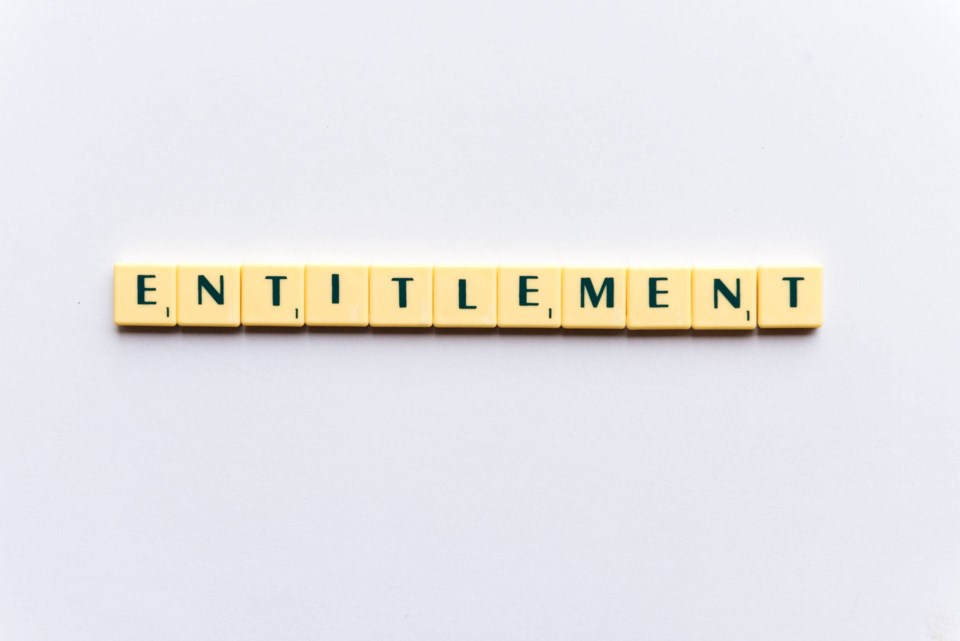By Rahwa Haile
Black folks are always in danger of being seen as suspicious. But my own privilege, instinctive sense of royalty, and living in the historically Black community of Bed Stuy generally protect me from drowning in this. But not today.
I am sitting in my neighborhood at my own table in my favorite Black-owned cafe, when a girl with an air of entitlement saunters over and casually demands that another woman and I "double up" so that she can have a table to herself to talk with a friend, who's coming soon. I avoid eye contact and wonder what it might be like to feel so entitled to other people's space. The other woman gets up to sit with me. I will myself into being generous too, and make room for her.
The table-taker's friend arrives, and the two of them scoot their table several inches closer to us. They moan about how hungover they feel after last night. I sigh, put my earplugs in, and continue reading about planned shrinkage programs.
A nearby table appears empty so I walk up to take it, eager to have more space to read and type up notes. The table-taker says "They didn't leave," referring to the two men who were sitting there before. "Awesome," I say flatly. Not wanting to ask my now cramped former tablemate to move again, I ask to sit with a man sitting by the tall window. As I grab my computer, the table-taker mumbles "We need to make sure it's yours." Not interested enough to find out what she's talking about, I ignore her and walk to my new table.
Moments later the table-taker's friend approaches me as I'm savoring my creamy latte and informs me that she has to verify that the computer is mine. I tell her that I know what my computer looks like, place it into my backpack and try to resume reading. But she's still there. She's standing guard over me, the maybe-thief, waiting for one of the men to testify that my computer--- the one with the big sticker that says "Brooklyn: take it back before it's gone"-- is not actually his, which I'm trying to steal while having the audacity to read social geography at the scene of the crime.
The man comes in, verifies that the computer I've claimed is mine is not his --he didn't bring his, apparently-- and the table-taker's friend finally stands down. I'm incredulous. My great great grandsomething was a king in the mountains of East Africa, which means I'm a queen, which is obvious.
I look up and notice that the man across from me looks upset. "Wow, that was fucked up," he says, and asks if I'm reading social geography. "Yes," I say, and the two of us share a pained chuckle that the woman accused me — the only Black customer currently at this café —of potentially stealing as I was reading about the racial politics of community displacement.
I know that I have to say something more to them. For all of the Black folks in this neighborhood, the vast majority of whom experience unfathomably worse than this on a daily basis. I can't let these people feel like they can treat us however they want-- and with impunity. Not this time.
I breathe deeply, approach and ask "Why would you accuse me of taking his computer? Do I look suspicious; the only Black customer in this café? I beseech you to think about how you talk to people." There is a hint of tear in her eyes. One of the men stands up to defend her. "It's my fault," he says. But I explain that she is the person who decided to insinuate that I took his computer, and to hover over me until he returned, to fact-check. She offers more unapologies. By now exhausted, I look at her and say "You're dripping with privilege, and it's disgusting," and walk back to the table I'm sharing with my new friend, Bobby's his name.
I ask Bobby to say something, anything, because I expect that they'll rationalize her behavior by saying that I'm an "angry Black woman," even though I'm calm. She needs to hear from a white person that the festering belief she harbors screamed out deafeningly into this space, "Black people are maybe-criminals!" Bobby tells her something I can't hear, after which she leaves the café with her now four-person entourage. "And stay out!" I think.
Pleased with their departure, I take my table back, and enjoy what's left of my luscious five dollar latte. I also drip privilege. Yet, having a PhD, owning a house, or even being a queen does not protect a person from being seen as a maybe-criminal outsider if they're Black and living in deracinating Bed Stuy.




